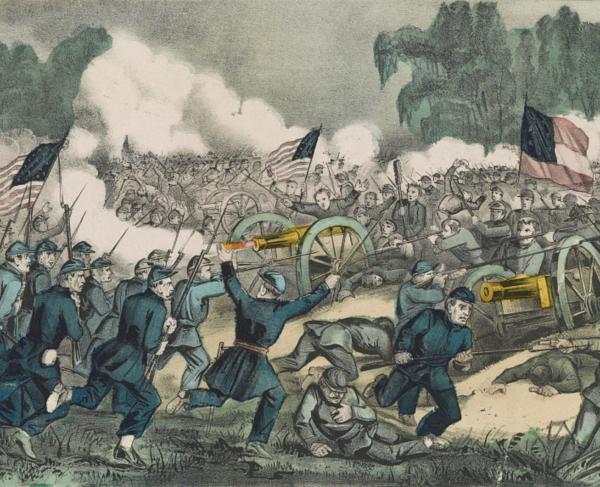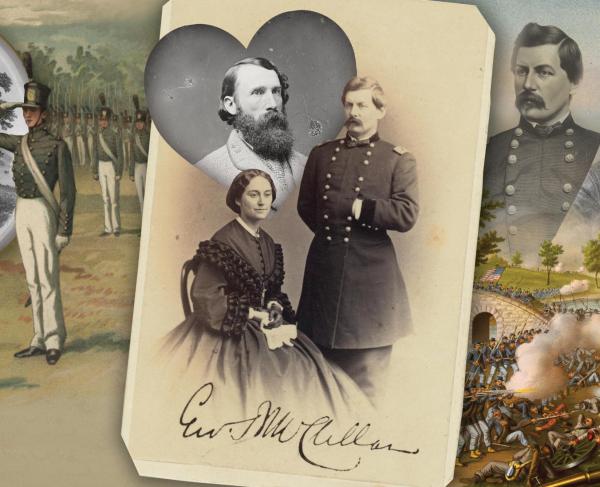Grant Versus Lee

Ulysses S. Grant
Hiram Ulysses Grant — a West Point clerical error gave him his more famous sobriquet — was born in Point Pleasant, Ohio, in 1822. He was a mediocre cadet — graduating 21st out of 39 in the class of 1843 — but performed well in battle, winning two citations for gallantry and one for meritorious conduct in Mexico. But when the fighting stopped and Grant was assigned monotonous duties at remote posts far from his wife and family, he turned to the bottle. He resigned his commission in 1854 to avoid being drummed out of the service.
After several unsuccessful, short-lived pursuits — including a brief episode as a farmer — he moved to Galena, Ill., to be a clerk in his family’s store. When the Civil War began, Grant eagerly jumped back into military service, where his talents and experience were recognized. By September 1861, he was given command of the District of Southeast Missouri.
Triumphs at Forts Henry and Donelson and the hard-won capture of Vicksburg made Grant the Union’s premier commander. In March 1864, Lincoln named Grant general-in-chief of the Federal armies and, although the casualties incurred were unprecedented, his campaigns in Virginia forced the war’s conclusion.
In 1868, Grant was elected the 18th president of the United States. His administration was riddled with corruption and scandal, although apparently the graft did not reach to the Oval Office itself. After losing his fortune to a corrupt bank in 1884, Grant began writing about his wartime experiences as a means of financial support. The final chapter of his two-volume Personal Memoirs of U.S. Grant was completed just days before he succumbed to cancer at age 63.
Robert E. Lee
Born to Revolutionary War hero Henry “Light-Horse Harry” Lee in Stratford Hall, Va., on January 19, 1807, Robert Edward Lee graduated second in the class of 1829 from the U.S. Military Academy at West Point — without earning a single demerit — and was assigned to the Corps of Engineers. Two years later, he married Mary Anna Randolph Custis, a descendant of George Washington. During the Mexican War, Lee served on Gen. Winfield Scott’s staff and earned three brevets for gallantry, both of which contributed to his subsequent appointment as superintendent of West Point.
Because of his exceptional reputation, Abraham Lincoln offered Lee the command of Federal forces in April 1861. But Lee declined and tendered his resignation from the army when Virginia seceded, arguing that he could not fight against his own people. Instead, he accepted a commission in the newly formed Confederate army.
In June 1862, Lee took command of the Army of Northern Virginia, and his military genius soon became readily apparent. Through masterful and audacious maneuvers, he was able to consistently defeat numerically superior foes; moreover, his integrity earned him the respect and admiration of his men. Despite his considerable efforts, on April 9, 1865, Lee was forced to surrender his weary and depleted army, effectively ending the Civil War.
Lee returned home on parole and eventually became the president of Washington College (now known as Washington and Lee University) in Lexington, Va. He remained in this position until his death on October 12, 1870, and is buried in a chapel on campus. His beloved horse Traveller is interred nearby.


